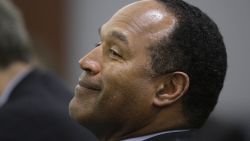Editor’s Note: Edward J. McCaffery is Robert C. Packard trustee chair in law and a professor of law, economics and political science at the University of Southern California. He is the author of “Fair Not Flat: How to Make the Tax System Better and Simpler” and founder of the People’s Tax Page. The opinions expressed in this commentary are his own. View more opinion at CNN.
The New York Times has broken a major story, based on access to decades of President Donald Trump’s tax return data, just as they have in the past broken stories about the President’s father, Fred Trump, and his aggressive tax planning, Donald Trump’s billion-dollar tax losses in the late 80s and early 90s, and son-in-law Jared Kushner’s years of apparent multimillion dollar federal tax avoidance. (A spokesman for Kushner’s attorney has said that “Mr. Kushner properly filed and paid all taxes due under the law and regulations.”)

The unifying theme here? Tax avoidance seems to be a family matter. Ordinary people – like you and me and Democratic presidential nominee and former Vice President Joe Biden – are not so fortunate.
The details of the new Times report paint a picture of a man using fairly standard tools of tax planning for the wealthy, but to lavish extremes: aggressively claiming business expense deductions for matters that look personal; using huge losses generated from some businesses to get out of paying taxes on his wages from other businesses; using debt heavily to get cash; and putting the kids on the payroll. This latter trick works with large “consulting fees” apparently paid to Ivanka Trump, the President’s daughter – an assessment the Times’ based on cross-referencing of her and her father’s returns.
Like father, like son, like son-in-law, like daughter; the Trumps are aggressive tax avoiders at best.
As with all of the Times’ reporting on the Trump clan’s tax history, the Sunday night data dump will prove to be a treasure trove for tax geeks and a confusing mass of dizzying detail for most of us. The Times itself indicates that it will follow up with further detailed articles, though its initial publication is already pretty heavy. After the report published, the President called it “totally fake news,” and “made up.” The Trump Organization’s lawyer, Alan Garten, told the Times that “most, if not all, of the facts appear to be inaccurate” and claimed that Trump’s paid “tens of millions of dollars in personal taxes to the federal government” over the past decade.”
What has been revealed will be shocking to some, unsurprising to others by this point. It is also important to stress that we cannot tell whether there is any illegality involved: the reporters had access to Trump’s tax return data, not necessarily to all of the supporting paperwork or, more importantly, the government’s responses to Trump’s tax reporting positions.
But beyond the minutiae of tax, the latest Trump data tells a far bigger and more important story. It tells a tale of desperation.
Trump emerges as a man living large, losing large, and constantly staying just one step ahead of his creditors. His businesses lose money. This gives him tax losses but the need for cash to keep living large. He gets lots of money – some $300 million at least – from borrowing. And Trump, the self-proclaimed King of Debt, knows that borrowing is not taxable income.
The upshot is that Trump’s creditors may now include all of us. Trump may be found to owe the government $100 million or more in back taxes, penalties and interest. Along with the debt, this makes Trump’s tab coming due – potentially hundreds of millions of dollars – to say nothing of the ongoing expenses of his extravagant lifestyle.
The President has one major asset: his name. Trump’s race against time and his creditors, possibly including the tax collector (pending the results of his ongoing IRS audit), depends on his ability to keep borrowing against his name to pay off his debts and finance his lifestyle – all until he dies and leaves the whole mess for his heirs to clean up. Times reporting suggests that this game was nearly up for Trump before the 2016 election, and this may be why he ran for office: to boost the value of his brand, to keep the scheme going.
Lo and behold, Trump won the presidency in 2016, putting off his own personal day of reckoning. But for the whole time he has been living rent free in the White House, Trump has been a desperate man, facing massive debts and looking for someone else to pay them off.
In a twist of fate, the voters who gave Trump a financial reprieve can now make him face his own financial reckoning, on his own – for once in his life.

















